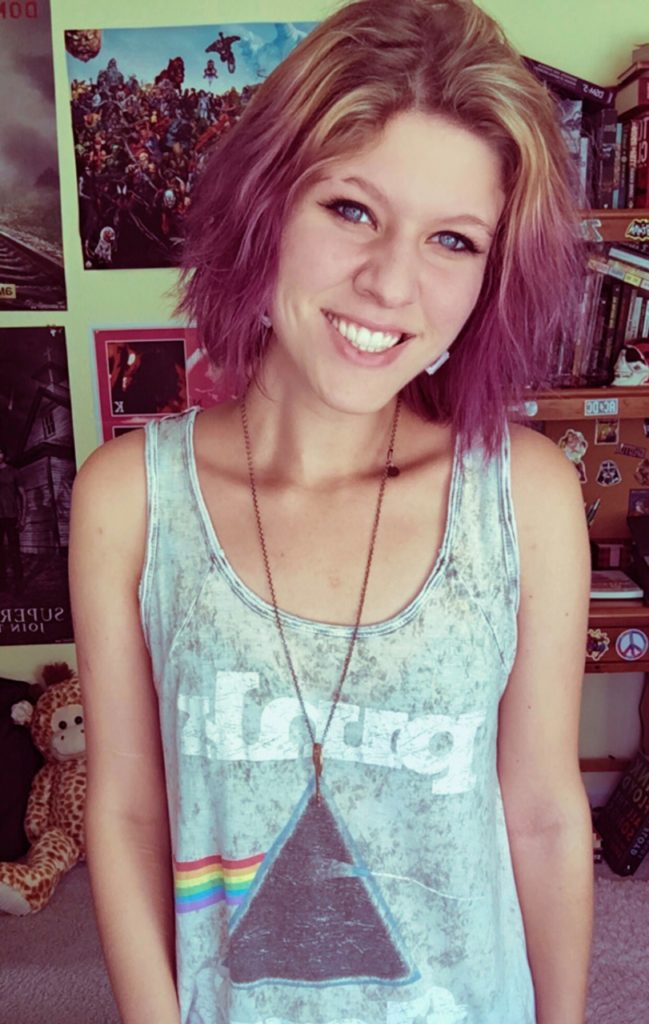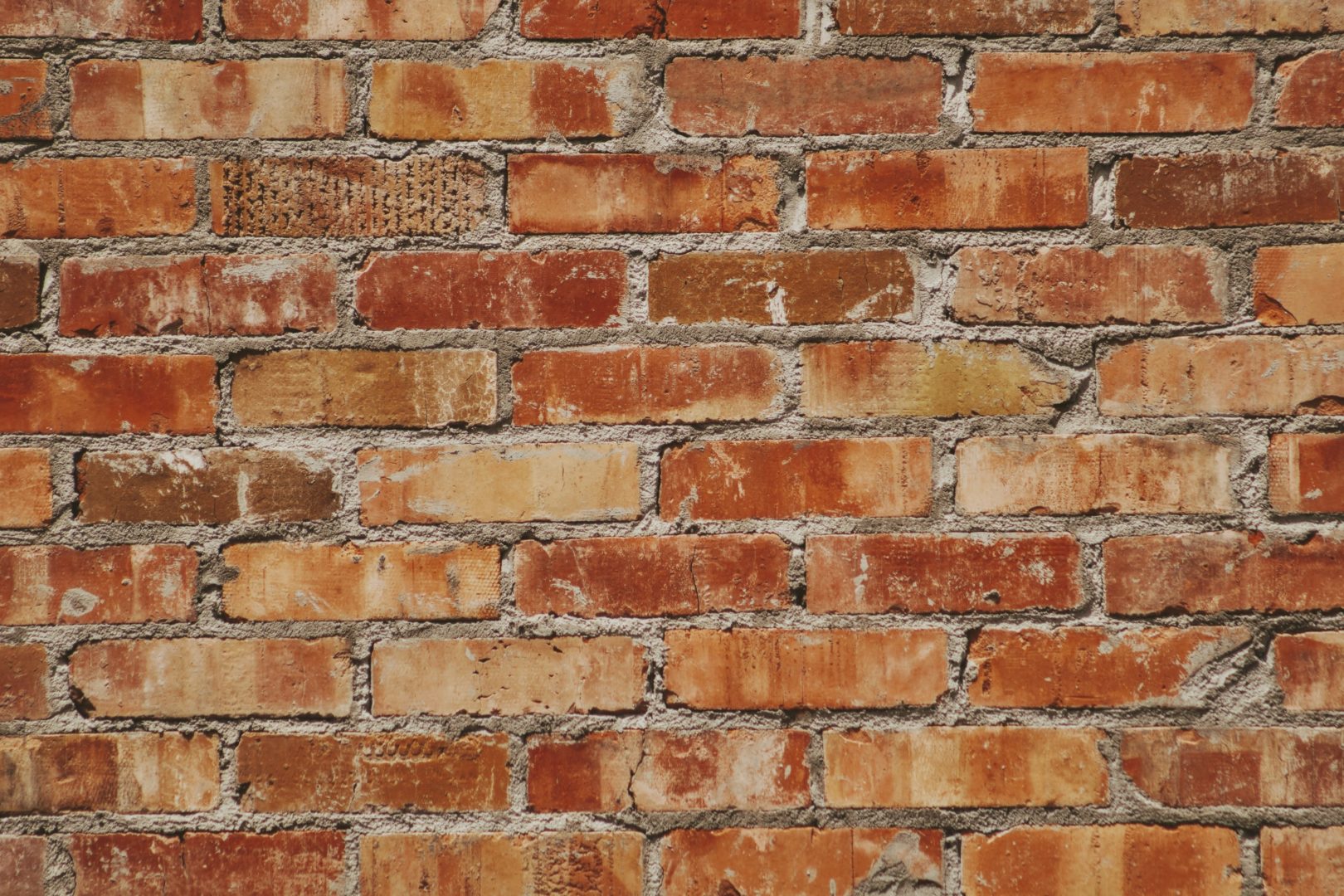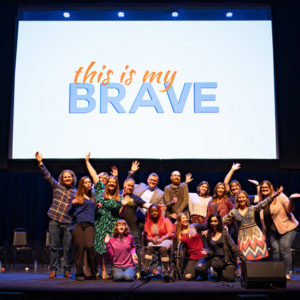Breaking Down Walls
By: Jessie Steele
I never knew what bipolar disorder was when I was younger. It was a foreign subject; it was taboo. The first time I heard the word someone was referencing the weather as bipolar, using the word as an adjective.
I was officially diagnosed bipolar when I was just about to turn 17. The mixed emotions were suffocating. Strong feelings like relief to finally know what was going on with me, but also terrified. The diagnosis felt like a death sentence. Stuck to have manic ups and depressive downs for the rest of my life, I was on a rollercoaster that would never end. My whole world was turned upside down forever.
Over the next year, I was in and out of mental hospitals and trying to find the right med combination to allow me to function in society. Even when the right meds finally came along, and I was stable, I still wasn’t happy. I felt… wrong.
I started to notice how common the words “crazy”, “insane”, and “psycho” would come up in a normal conversation. People using those words to describe slightly odd things that wouldn’t actually be classified as severely abnormal like the words would entail. I’m guilty of it as well. I would call my best friend “crazy” because she liked bacon in her milkshakes or she would call some music “insane” because the bass player is amazing. No one thinks about saying these words, it’s just automatic. Maybe it’s because these words have more than one meaning, they can describe plenty of things.
However, for a good period after I was diagnosed, I almost found myself flinching at those words. I felt those words were said directly at me, as if everyone knew I was now legally ‘crazy’. I started to identify with those words so intensely, I couldn’t see myself as a normal human being anymore. A wall had been created between mankind and myself, and every time I heard the word “crazy,” the wall only became higher.
I was always an odd kid. Ever since I was little, I saw the world in a different lens. No one understood me, and I didn’t understand anyone either. My wall had been created at a very young age, but up until my diagnosis the wall was short enough that I could at least still see over it. The wall now was tall and dense. If I pounded my fists against it, no one would hear me. Nothing could tear it down, it was too strong.
Going through life was difficult. I tried my best to make my secluded mind a secret. I made new friends, I got along with my family, I smiled and laughed through out the day. But I was different inside. I kept telling things to myself like “they don’t even know they’re in the room with a maniac” or “if only they could read my mind, they wouldn’t want to be friends with my psycho ass.” I felt that if anyone knew the real me, they would turn away.
I remember the first time I met her. I was going into my freshman year of college, and was trying to choose a roommate to live with in the dorms. There was a website just for the university where you could browse other upcoming freshman and talk to them to see if you’d be a good fit. Kind of like a dating website for roommates. She liked my profile, and it was actually an accident that I requested her to be my roommate. I was trying to rather send her a message or simply like her back, but I clicked the wrong button. She accepted my request and we got together and soon became friends.
After living together for a few months, I decided to tell her my secret. I told her I was bipolar, but just shrugged it off as if it was no big deal at all. But while telling her, my heart was beating too fast. But she took it well. She took it so well, that it scared me more than the rejection I was expecting. Over the next few years, I opened up more and more to her. Every secret I told her, every feeling or disturbing thought that came across my mind, I ended up sharing with her. I didn’t know it, but my wall was starting to come down brick by brick.
Hearing someone say “crazy” didn’t bother me anymore. I didn’t even realize it until she made a joke about me hallucinating something and she caught herself and immediately apologized. I laughed at the joke and told her it was okay. The joke was funny and it didn’t bother me in the slightest.
When I went home after that, I sat in my bed and thought hard about it. Her joke was implying that I was crazy, which I’m sure she didn’t mean, but it was true. I was crazy, wasn’t I? But instead of that building my wall, it took it down more. That word felt empowering.
Hell yeah, I am crazy. But that’s okay. I can laugh about it because it’s okay to be crazy. She helped me realize, that just because you aren’t the ‘normal’ doesn’t mean you’re bad. She didn’t judge me on being crazy, why should I? I started to own the word. I made jokes about it and brought it up more often as a causal conversation topic instead of a hidden secret I didn’t want anyone to know. I posted on social media about it, realizing other people felt the same way, too. I wasn’t alone.
My best friend made a strong impact on helping me accept my mental health. She came to me with nonjudgemental eyes and an open heart, and that’s all I needed for my wall to tumble.

About the Author:
I grew up in a suburban town in northern Virginia outside of Washington D.C. and moved to Boulder, Colorado when I was 12. I’m currently a junior at the University of Colorado and working towards becoming a history teacher someday. Over the last six years, I’ve struggled with my mental health and battled leukemia (I am now cancer free!) and am always trying to spread awareness about mental illness.

